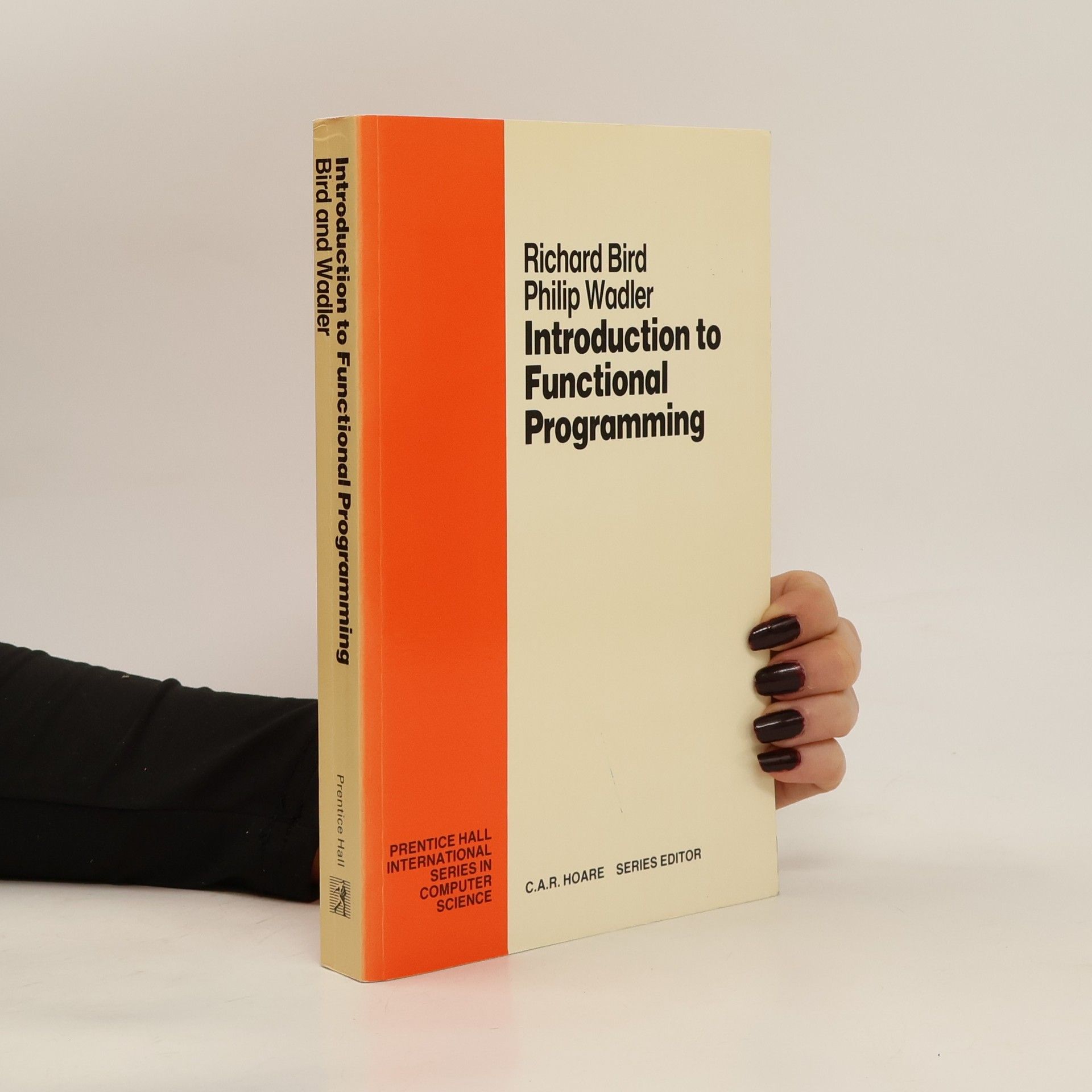Focusing on generics and collections in Java, this second edition addresses Java 21 and serves as a comprehensive resource for effectively using and writing generic APIs. It thoroughly explores the collections library, detailing when and how to utilize each type for various tasks. Additionally, it delves into stream processing, explaining the interaction between different models to optimize performance with the platform library. This guide is essential for mastering both common applications and complex scenarios in Java programming.
Philip Wadler Knihy




Introduction to Functional Programming
- 293 stránek
- 11 hodin čtení
After the success of the first edition, Introduction to Functional Programming using Haskell has been thoroughly updated and revised to provide a complete grounding in the principles and techniques of programming with functions. The second edition uses the popular language Haskell to express functional programs. There are new chapters on program optimisation, abstract datatypes in a functional setting, and programming in a monadic style. There are complete new case studies, and many new exercises. As in the first edition, there is an emphasis on the fundamental techniques for reasoning about functional programs, and for deriving them systematically from their specifications. The book is self-contained, assuming no prior knowledge of programming and is suitable as an introductory undergraduate text for first- or second-year students.
Covers everything from the basic uses of generics to the strangest corner cases. This book covers: fundamentals of generics: type parameters and generic methods; boxing and unboxing, foreach loops; subtyping and wildcards; evolution not revolution; Design patterns for generics; Sets, Queues, Lists, Maps, and their implementations; and more.
Computation, itself a form of calculation, incorporates steps that include arithmetical and non-arithmetical (logical) steps following a specific set of rules (an algorithm).